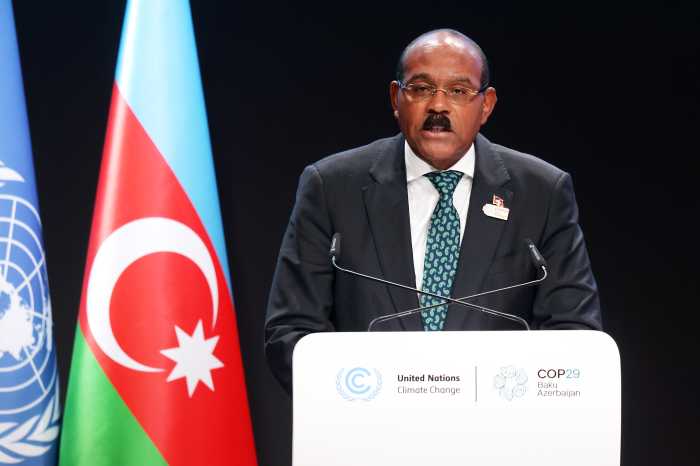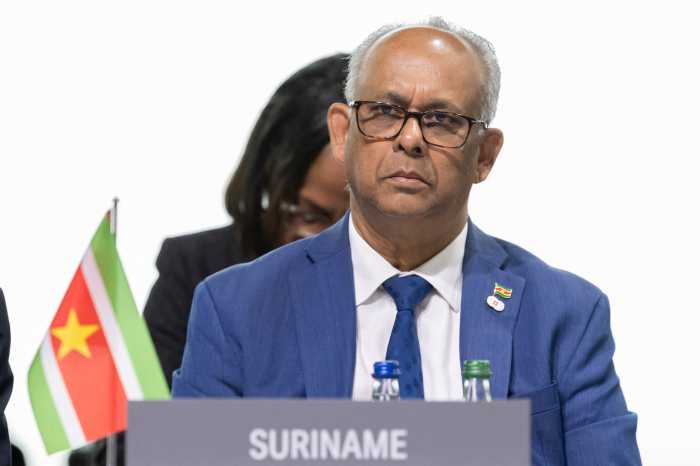Western nations appear to be moving against Caribbean Community nations controversially offering local passports and citizenship in exchange for investment cash with Antigua becoming the first major victim.
Canada, which had for decades allowed Antiguans and citizens from a few other Caribbean nations to enter the country without visas, has clamped down.
Sir Ronald Sanders, the island’s diplomatic representative to Ottawa has warned that the move is likely to be permanent even if the twin island with Barbuda decides to scrap its Citizenship by Investment (CIP) scheme that it, St. Kitts, St. Lucia, Grenada and Dominica all have in place.
Canada formally closed doors on free entry into the country at 5.30 am on June 27, throwing officials and ordinary residents into a frenzy as intended travelers would now have to fork out huge sums to fly to Canada’s visa hub in Trinidad to obtain visas. The alternative is to send passports and filled in forms by courier service as is the case with Guyanese and others.
The CIP had been recently taking a battering in international media especially after CBS’s 60 Minutes program aired two separate segments on the scheme this year, pointing to perceived dangers about passports and citizenship certificates ending up in the wrong hands.
In the case of Dominica, Opposition Leader Lennon Linton made it clear during interviews that successful applicants do not “even have to set foot” on the island to become citizens and travel with local passports. They could simply apply online.
Applicants pay prices ranging from about $250,000 to more than a million dollars for travel and citizenship documents. Others pay more if they decide to invest in real estate or critical sectors identified by governments.
St. Kitts’ system is by far the most established even though authorities have been forced to cancel hundreds of passports like Antigua after they ended up in the hands of people of dubious backgrounds.
Antiguan Prime Minister Gaston Browne, an unapologetic critic of the CIP in the absence of reduced aid and international trading opportunities, said the country regreted the move and wasted little time in linking the free entry cancellation to the CIP and international media exposure.
“This decision relates to concerns over persons who obtain passports under Citizenship by Investment Programs (CIP) in the Caribbean,” Browne said in a formal statement carried widely by the Antiguan Observer and other outlets.
He said an official had warned authorities. “The Canadian official said that a concern is that Antigua and Barbuda’s CIP program is not a residency program. In response, Antigua and Barbuda prime minister pointed to the intense vetting of its CIP system, the revenues to the people of Antigua and Barbuda when the terms of trade and aid have declined and the banking system is threatened,” he said.
Browne said that despite the bad press in recent years, Antigua, Barbados and the Bahamas, were the only countries whose citizens traveled without visas to Canada.
Foreign Minister Charles Fernandez said government was caught off guard, contradicting Browne. The visa requirement is something that the government was not aware was coming. There was no smoking gun.” In current times of heightened security, “you cannot fault any country.”
Many regional nations turned to this system because of the collapse of several of their lifeline industries, banana, sugar and offshore international banking in particular. Others lost income from fluctuating tourism revenues and from taxes free trade in the bloc of 15 nations. St. Vincent under four term Prime Minister Ralph Gonsalves has stoutly refused to join the scheme, suggesting that it has dangers and is an affront to sovereignty.
The cancellation moved the main opposition United Progressive Party (UPP) which had criticized the program while in opposition but kept it during 10 years in government, said the time was ripe for review.
The party said “it will carry out a referendum on the program and allow the citizenry to determine whether the program should be continued. The UPP is saddened by the loss of our distinct privilege of visa-free access to Canada.
The financial hardship the new requirement will impose on those who must now go through the process of application and possible costly travel to Trinidad — airfare, accommodation, transportation — with no guarantee of being granted a visa.”


























